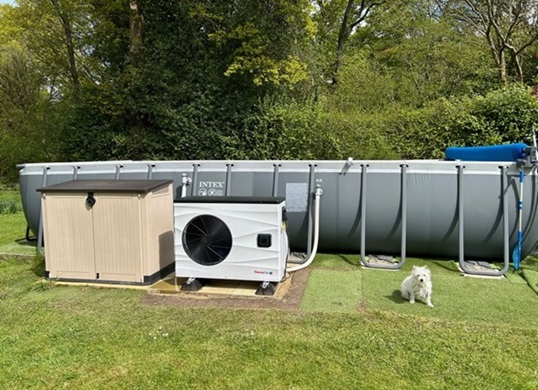Installing a pool heat pump can be a great way to extend your swimming season and enjoy comfortable water temperatures all year round. But when it comes time to install one, many homeowners ask: Can I install a pool heat pump myself? The answer depends on several factors, including your technical experience, comfort with plumbing and electrical systems, and the complexity of your specific installation. Let’s break down the pros and cons of DIY pool heat pump installation so you can make an informed decision.
Pros of Installing a Pool Heat Pump Yourself
1. Cost Savings
One of the most appealing aspects of DIY installation is the potential to save money on labor costs. Hiring a professional to install your pool heat pump can add a few hundred to over a thousand dollars to the total cost. If you’re confident in your skills, installing it yourself can significantly reduce the overall expense.
2. Scheduling Convenience
When you install the pool heat pump on your own, you can do it on your own time. You won’t have to coordinate with a contractor’s schedule or wait days—or even weeks—for professional availability during the busy season.
3. Personal Satisfaction
There’s a sense of accomplishment that comes from completing a home project yourself. If you’re a hands-on homeowner who enjoys DIY projects, installing a pool heat pump can be a satisfying challenge.
Cons of DIY Pool Heat Pump Installation
1. Technical Complexity
Pool heat pumps require correct plumbing, electrical connections, and adequate space for airflow. If installed incorrectly, the unit may not function efficiently—or worse, it could become damaged or pose safety risks. For example, improper electrical wiring could cause serious hazards.
2. Code Compliance and Permits
Many areas require permits for installing pool heat pumps, especially because of the electrical work involved. A licensed contractor will know local codes and ensure the installation meets safety standards. DIYers might miss important compliance steps, leading to fines or future issues when selling the home.
3. Warranty Considerations
Some manufacturers require professional installation for the warranty to remain valid. If you install it yourself and something goes wrong, you might not be covered. Always read the warranty terms carefully before attempting DIY installation.
4. Time and Tools
Installing a pool heat pump isn’t a quick job. It may take hours or even days, especially if you lack the necessary tools or encounter unforeseen complications. If your time is limited, it might be worth hiring a professional to get the job done right and fast.
So, Should You Do It Yourself?
If you have strong experience with electrical and plumbing systems and understand local building codes, DIY pool heat pump installation could be a viable option. However, if you’re unsure about any aspect of the process or want to ensure your system runs efficiently and safely, it’s best to consult a licensed professional.
Let the Pros Handle It – Contact Mannix Heating & Cooling Today
At Mannix Heating & Cooling, we specialize in professional pool heat pump installation that’s efficient, code-compliant, and backed by full manufacturer warranties. Don’t risk costly mistakes or safety issues—our experienced technicians will ensure your pool stays warm and energy-efficient, season after season.
Ready to make the most of your swimming season?
Call Mannix Heating & Cooling today for a free installation quote!
Or schedule your appointment online and let us do the heavy lifting while you relax and enjoy the pool.
This article was written by a professional at https://mannixhvac.com/, a trusted name in HVAC solutions since 2010. Founded by Jerry Mannix, a seasoned expert with over 30 years of experience, Mannix Heating & Cooling is dedicated to putting customers first, providing honest assessments, and delivering top-quality heating and cooling services. With a team of skilled technicians and a commitment to excellence, Mannix ensures your home stays comfortable year-round.

